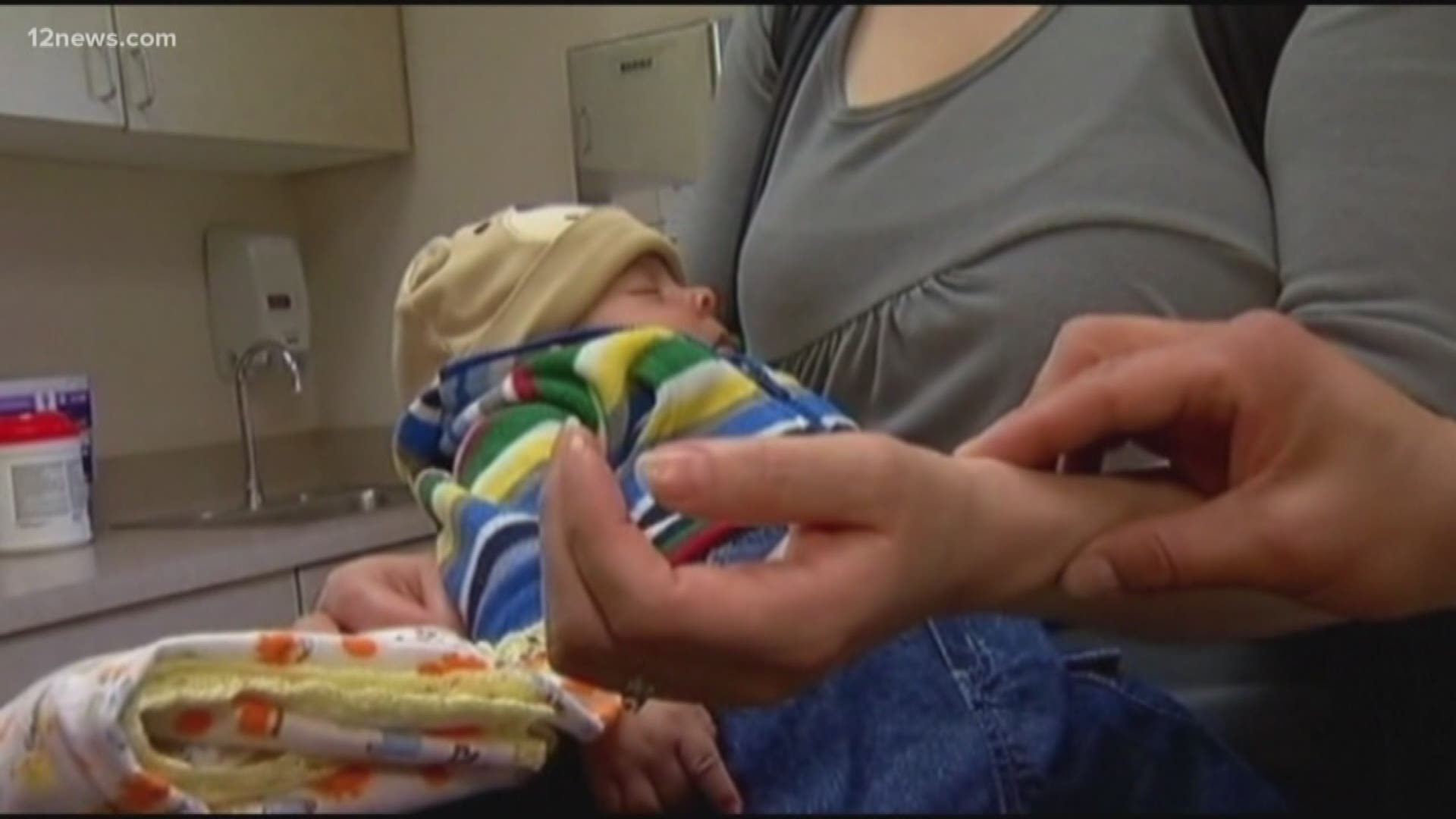GILBERT, Ariz. — Police are still looking for answers as to what could have lead a 19-year-old women to kill her 4-week-old baby.
Investigators say Jenna Folwell admitted to drowning her son in a bathtub and tried to cover up the murder by claiming her child had been abducted.
Some people on the 12 News Facebook page asked if Folwell was experiencing mental health issues, specially postpartum depression.
Experts in this field say the disorder is more common than you think.
Folwell claimed someone abducted her baby month-old son, Rainer while at a park in Chandler, but in the hours following the claims police discovered the baby's body inside a duffel bag in the Folwell's home.
"I can’t imagine what must have been in her mind but what I can tell you, clinically and what we know, there’s definitely a significant disconnect in her sense of reality,” said Sharla Best, a therapist at Women’s Health Innovations in Gilbert.
Best and her colleague Michelle Lacy are family therapists who specialize in postpartum depression.
They say there are telltale signs people can watch out for to monitor the mental health of a new mom.
“If you see a vast change, a significant change in behavior, thought process or difficulty sleeping,” Lacy said.
Because of hormonal changes, it’s not uncommon for women to experience the baby blues for a few days following delivery. Beyond that timeframe, you’re considered to be diagnosed with postpartum depression.
“We know that being a single mom is a risk factor. We know that being a young mom is a risk factor, so right there she had two of the major risk factors,” Lacy said.
According to Best and Lacy, other risk factors include history of depression before becoming pregnant and limited social support.
The most extreme case of postpartum depression is postpartum psychosis occurring in the first three months after childbirth.
“When a women is experiencing postpartum psychosis, she is hallucinating, she has false beliefs or dilutions, she’s hearing or seeing things not there,” Lacy said.
The postpartum spectrum is vast but treatable, especially if an expectant mom starts family counseling the moment she finds out she’s pregnant.
In rare cases, one out of every thousand, postpartum depression does turn deadly.
Women’s Health Innovations offers free health evaluations to new and expecting mothers across the Valley.
To learn more about postpartum depression and Women's Health Innovations of Arizona, click here.


